Founding Fathers Quotes on Civil Lawsuits and Common Law in the Seventh Amendment
You're free to republish or share any of our articles (either in part or in full), which are licensed under a Creative Commons Attribution 4.0 International License. Our only requirement is that you give Ammo.com appropriate credit by linking to the original article. Spread the word; knowledge is power!
“In Suits at common law, where the value in controversy shall exceed twenty dollars, the right of trial by jury shall be preserved, and no fact tried by a jury, shall be otherwise re-examined in any Court of the United States, than according to the rules of the common law.”
The Seventh Amendment pertains to civil litigation and effectively puts the popular voice – the jury – into that as well as criminal trials. It also stipulates that this right does not exist for amounts less than $20. This sounds like a very low threshold today, but at the time, the average daily wage was $0.50, so $20 was a little more than the average wage of an average worker for an entire month.
Like the Sixth, this has been undermined by procedural changes in how our court system works. Much like the plea bargains of the criminal trial, civil trials have something called “summary judgment.” This is where a judge declares what he believes a reasonable jury might find in a lawsuit. This is, like the plea bargain, a way of clearing up a legal and judicial system that would otherwise be very clogged up and move at a glacial pace.
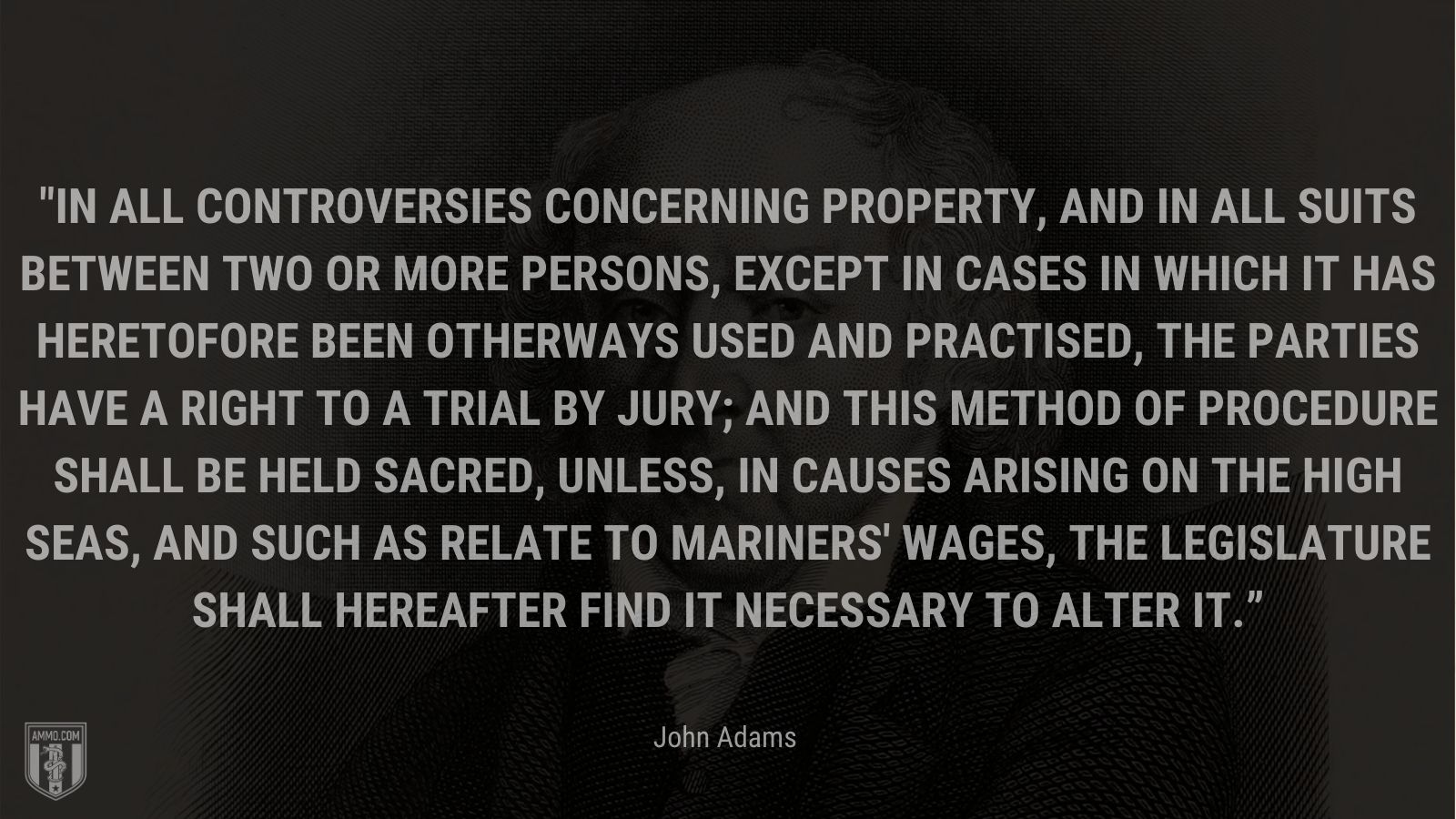
“In all controversies concerning property, and in all suits between two or more persons, except in cases in which it has heretofore been otherways used and practised, the parties have a right to a trial by jury; and this method of procedure shall be held sacred, unless, in causes arising on the high seas, and such as relate to mariners' wages, the legislature shall hereafter find it necessary to alter it.”
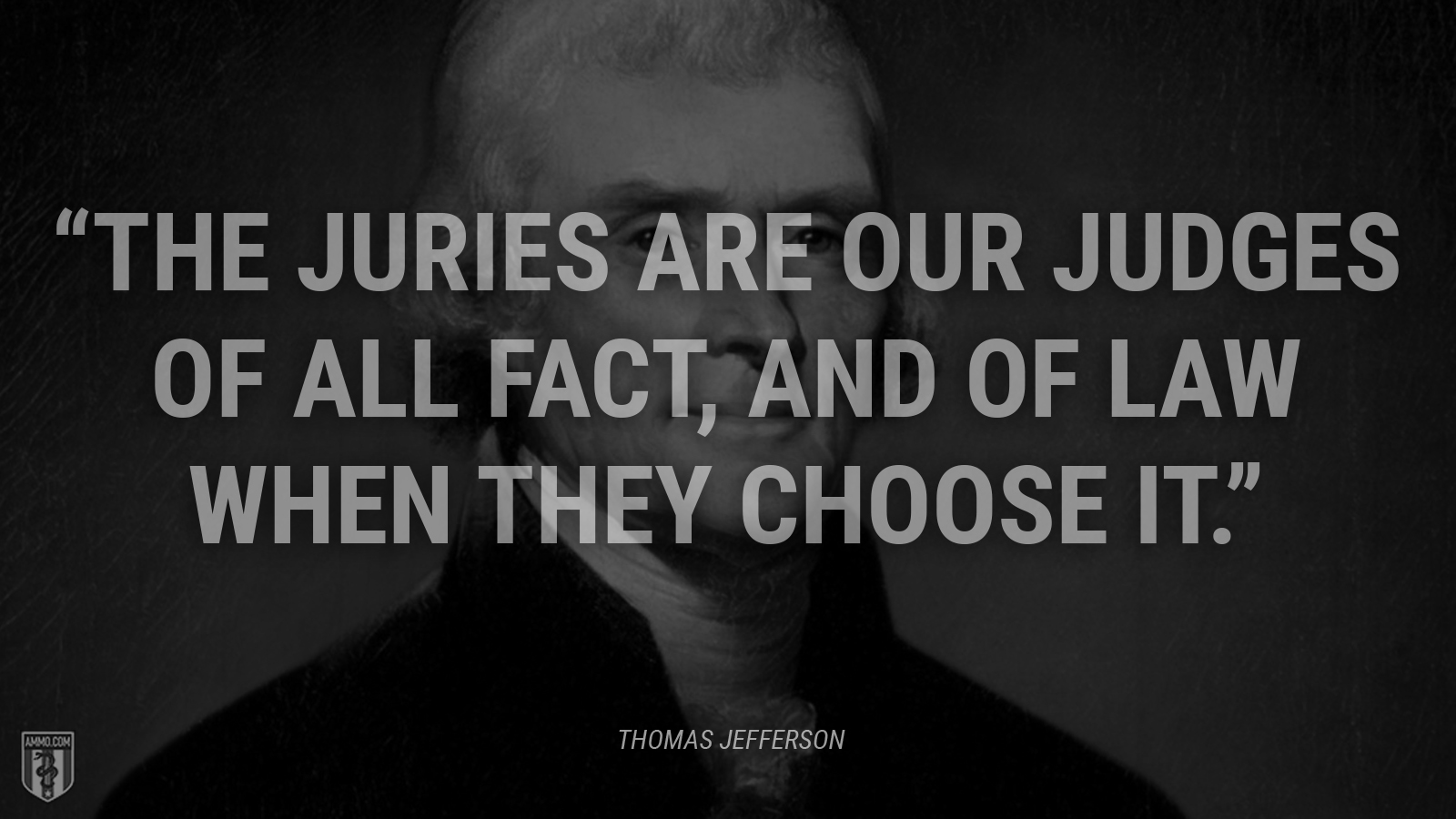
“The juries are our judges of all fact, and of law when they choose it.”
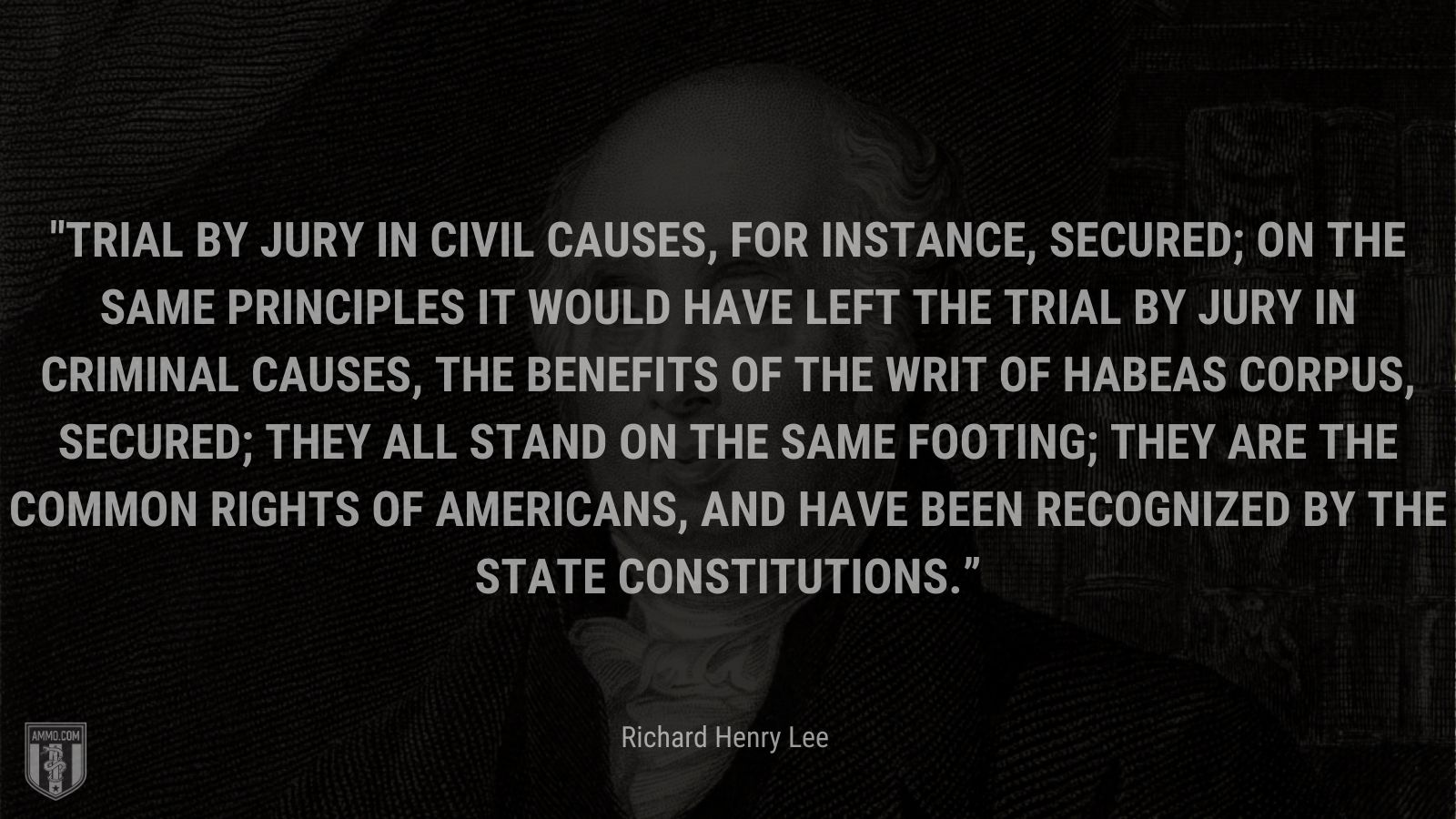
“Trial by jury in civil causes, for instance, secured; on the same principles it would have left the trial by jury in criminal causes, the benefits of the writ of habeas corpus, secured; they all stand on the same footing; they are the common rights of Americans, and have been recognized by the state constitutions.”
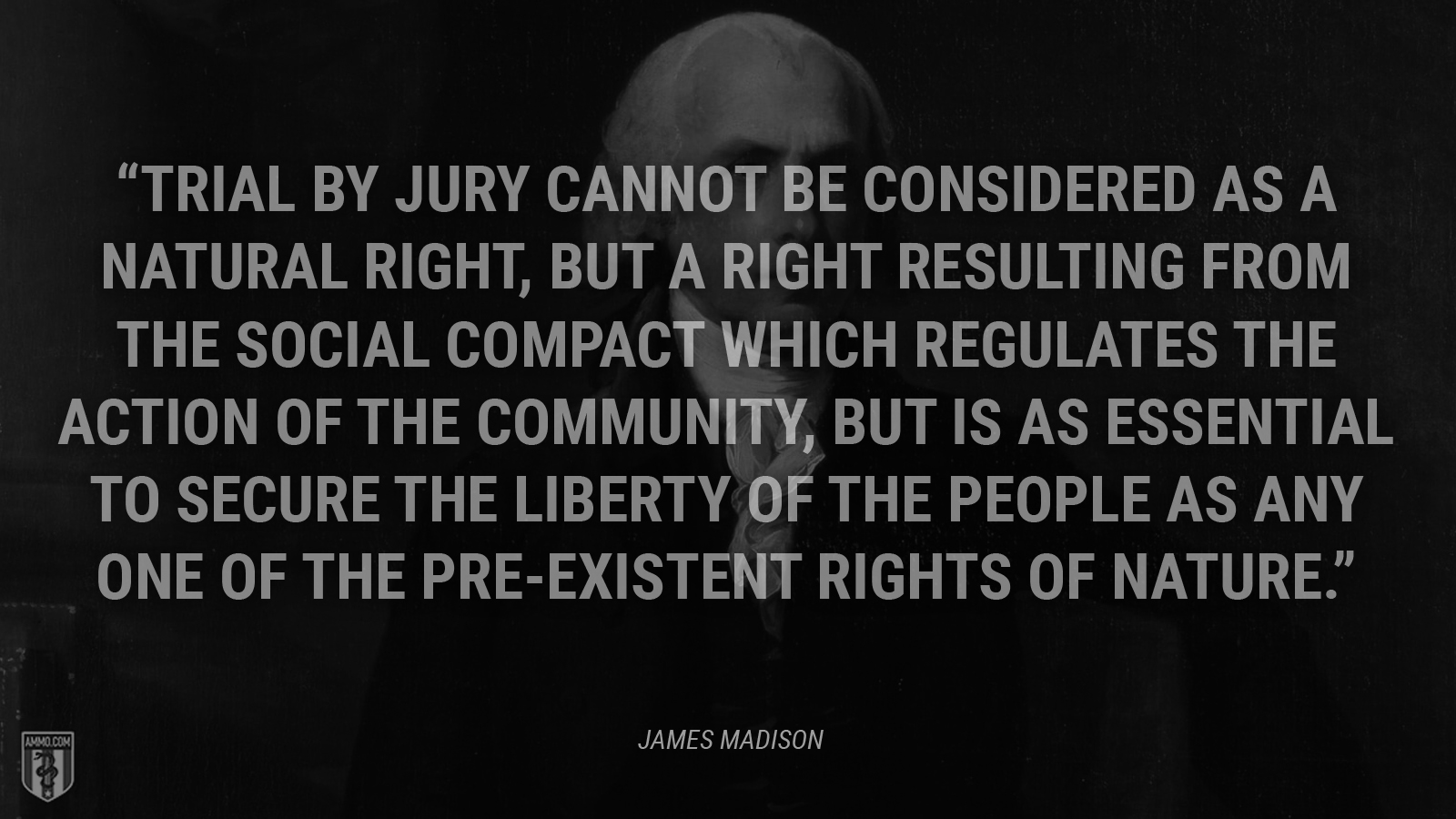
“Trial by jury cannot be considered as a natural right, but a right resulting from the social compact which regulates the action of the community, but is as essential to secure the liberty of the people as any one of the pre-existent rights of nature.”
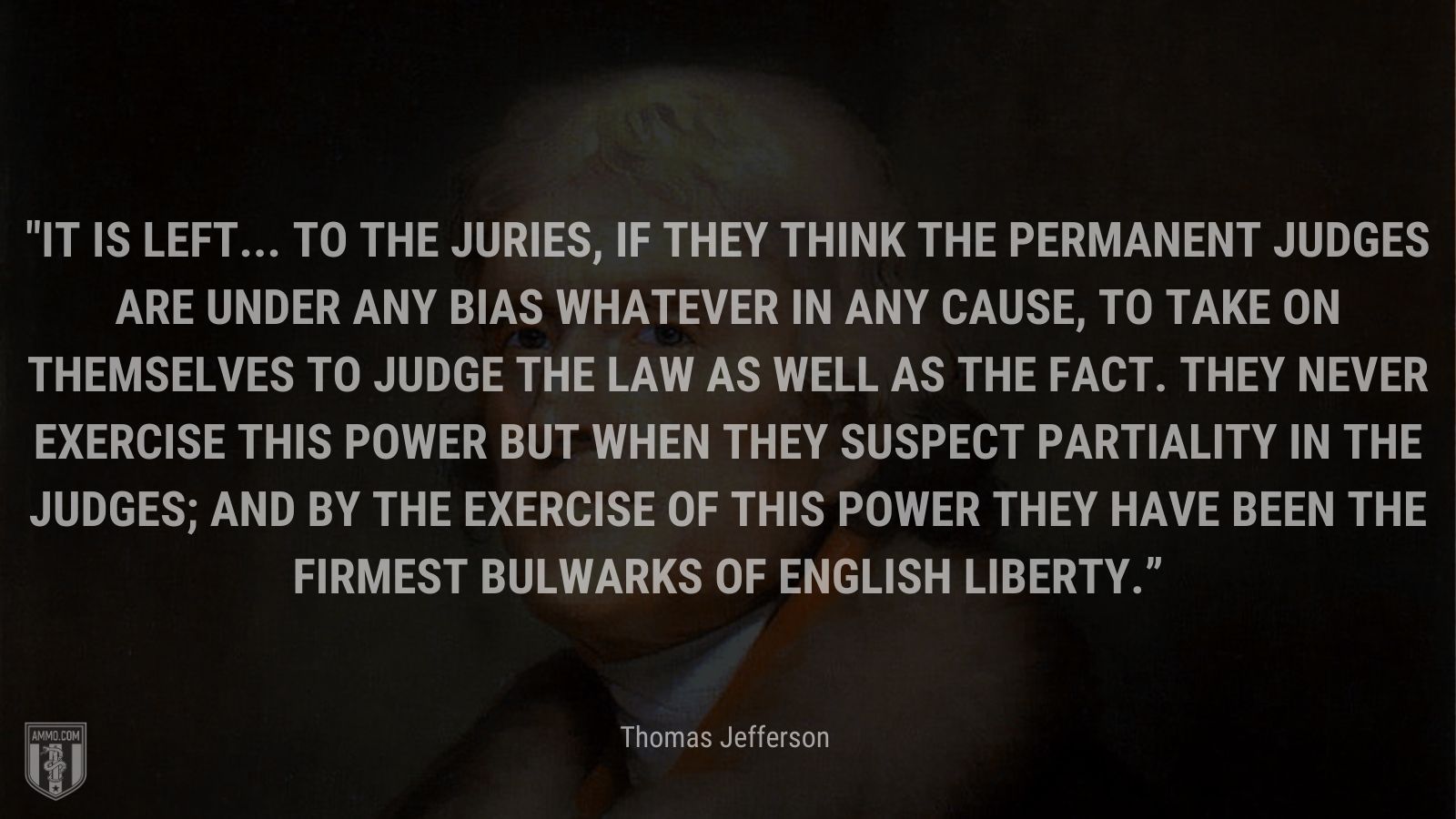
“It is left... to the juries, if they think the permanent judges are under any bias whatever in any cause, to take on themselves to judge the law as well as the fact. They never exercise this power but when they suspect partiality in the judges; and by the exercise of this power they have been the firmest bulwarks of English liberty.”
Quotes: Founding Fathers
- Founding Fathers Quotes: Our Favorite Quotes from America's Courageous Revolutionaries
- Founding Fathers Quotes on Religious Freedom and the Separation Between Church & State
- Founding Fathers Quotes on Freedom of Speech and Freedom of Press in the First Amendment
- Founding Fathers Quotes on Guns and the Second Amendment's Right to Keep & Bear Arms
- Founding Fathers Quotes on Standing Armies and Quartering Troops in the Third Amendment
- Founding Fathers Quotes on Privacy, Search, and Seizures in the Fourth Amendment
- Founding Fathers Quotes on Due Process and Eminent Domain in the Fifth Amendment
- Founding Fathers Quotes on Criminal Justice and the Right to Counsel in the Sixth Amendment
- Founding Fathers Quotes on Civil Lawsuits and Common Law in the Seventh Amendment
- Founding Fathers Quotes on Excessive, Cruel or Unusual Punishment in the Eighth Amendment
- Founding Fathers Quotes on the Dangers of Centralized Power in the Ninth and Tenth Amendments
- Founding Fathers Quotes on the Importance of Physical Health and Exercise
- Founding Fathers Quotes on How Central Banking is Destructive to America's Economic System
- Founding Fathers Quotes on the Importance of Wisdom and Education in a Free Society
- Founding Fathers Quotes on the Limited Executive Powers of the United States Presidency
- Founding Fathers Quotes on Why America's Revolutionaries Fought For Liberty and Freedom
- Founding Fathers Quotes on Justice For All and Equal Treatment Under the Law
- Founding Fathers Quotes on Hope for Peace, Hesitation for War & Restrictions for Military
- Founding Fathers Quotes on Family, Friends, and Seeking Wisdom Through Relationships
- Founding Fathers Quotes on Politics, Patriotism, and the Importance of Putting America First
- Founding Fathers Quotes on the American Revolution and the Fighting Spirit for Independence
- Founding Fathers Quotes on Government, Democracy, and Placing Power in the People
- Founding Fathers Quotes on the Founding of the Nation and the United States Constitution
